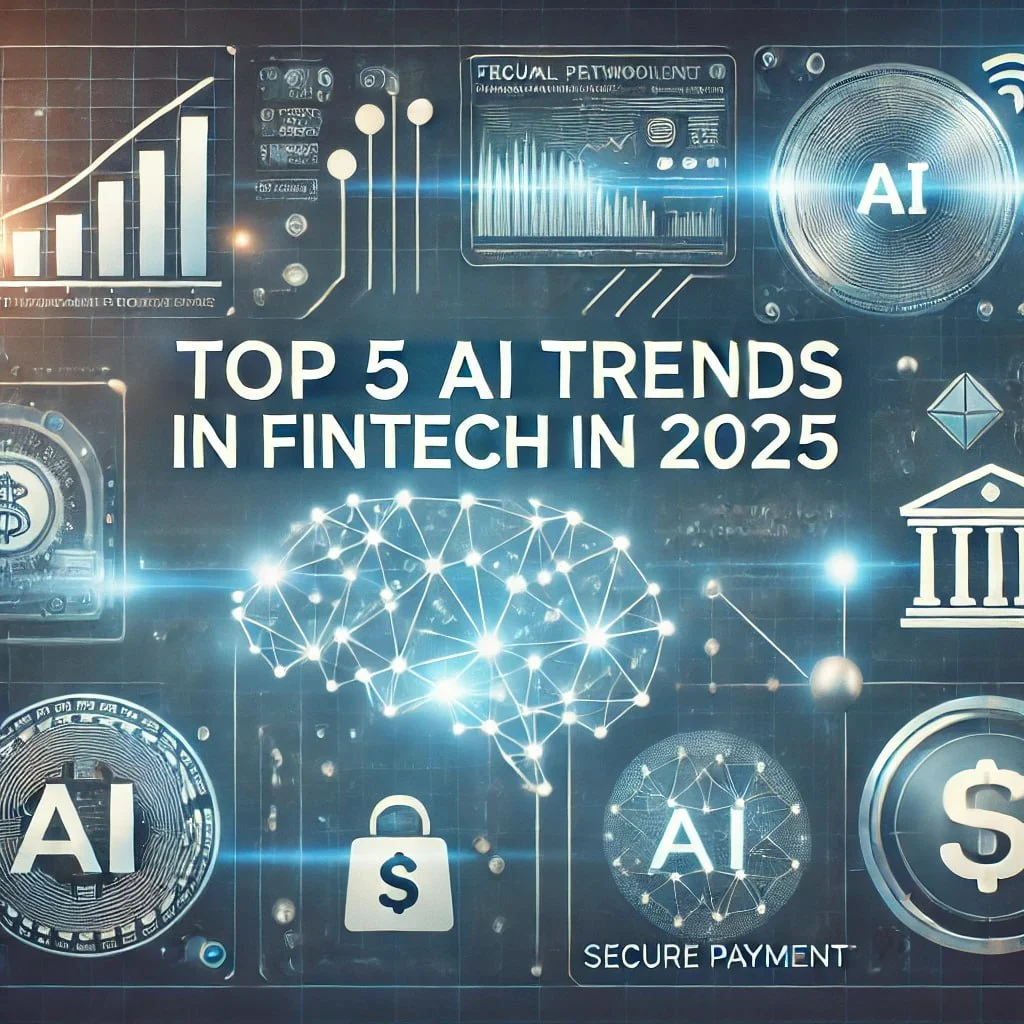Top 5 AI Trends in Fintech in 2025
Discover the top 5 AI trends shaping fintech in 2025. Explore how AI is transforming risk management, personalization, and financial flow optimization, with insights from PayStar.
Introduction
Did you know that the global AI market in fintech is expected to reach a staggering $26.67 billion by 2025? This rapid growth highlights just how transformative artificial intelligence has become for the financial sector. AI isn’t just an emerging trend; it’s reshaping how businesses manage risk, optimize financial flows, and enhance customer experiences.
At PayStar, we’ve closely observed these changes and identified five key trends that are driving innovation in the fintech industry this year. These trends are not just technological shifts; they’re redefining the very core of how financial services operate, offering unprecedented opportunities for efficiency, security, and personalization.
In this article, we’ll explore the most significant advancements in AI, from personalized financial solutions and fraud detection to the integration of AI in decentralized finance (DeFi) and open banking. As fintech evolves, these trends represent both the challenges and opportunities that will shape the future of the industry.
Which of these trends will have the most profound impact on fintech—and how can businesses leverage them to stay ahead? Let’s dive in to uncover the answers.
1. AI-Driven Personalization in Financial Services
Personalization has become a cornerstone of customer engagement in the fintech sector. AI systems analyze massive datasets, including customer transaction histories, spending habits, and risk profiles, to create highly tailored financial products. For instance, AI can recommend investment portfolios that match a user’s risk tolerance or predict upcoming expenses to suggest savings strategies.
Such tools not only enhance the customer experience but also improve financial literacy by providing clear and actionable insights. Fintech firms adopting AI-driven personalization are seeing increased customer retention, higher satisfaction rates, and better competitive positioning in a crowded market.
2. WealthTech: AI-Powered Wealth Management
AI has democratized wealth management, making sophisticated advisory services accessible to a broader audience. Robo-advisors powered by advanced machine learning algorithms can evaluate market trends, predict asset performance, and provide comprehensive portfolio optimization—all at a fraction of the cost of traditional wealth managers.
Moreover, AI helps streamline tax planning, ensuring that clients maximize their returns while staying compliant with regulations. By utilizing AI in WealthTech, companies are enabling even small-scale investors to benefit from professional-grade financial insights and strategies.
3. Advanced Fraud Detection and Cybersecurity
As financial fraud evolves, so do the defenses against it. AI-powered fraud detection systems analyze transaction patterns in real time, identifying anomalies that could indicate fraudulent activities. For example, if a user in one location suddenly initiates a transaction from a distant country, AI algorithms can flag it for further review or automatically block it.
These systems are also adaptive, learning from new fraud patterns to continuously refine their detection capabilities. This proactive approach minimizes financial losses and builds customer trust by ensuring the highest levels of security.
4. Robotic Process Automation (RPA) in Financial Workflows
AI-driven Robotic Process Automation (RPA) is transforming operational efficiency in fintech. From handling customer onboarding processes to automating credit risk assessments, RPA reduces human involvement in repetitive tasks while ensuring speed and accuracy.
In addition to automating back-office tasks, AI-enhanced RPA is now capable of handling decision-making processes by analyzing structured and unstructured data. This evolution allows fintech firms to scale operations rapidly without compromising service quality.
5. AI Integration with Decentralized Finance (DeFi) and Open Banking
The convergence of AI with Decentralized Finance (DeFi) and open banking is one of the most exciting developments in 2025. AI improves DeFi platforms by automating loan risk assessments, optimizing liquidity pools, and ensuring the security of smart contracts.
In open banking, AI analyzes shared customer data to provide personalized financial solutions while maintaining strict regulatory compliance. This integration empowers users with greater control over their finances while fostering innovation in financial products and services.

How PayStar Uses AI to Innovate
At PayStar, we harness the power of AI to deliver secure, efficient, and customer-focused financial solutions. AI is a cornerstone of our operations, and we use it to address critical areas such as fraud detection, financial flow optimization, and customer support.
- Fraud Detection: Our AI model monitors financial transactions in real time, analyzing multiple variables to identify and block suspicious activity. By alerting our monitoring team to potential threats, we maintain a secure financial environment for our customers.
- Financial Flow Optimization: To enhance successful payment conversions, our AI systems evaluate factors such as payment data, merchant profiles, and user behaviors. This enables us to select optimal routing and cascading scenarios for each transaction, ensuring smooth and efficient processing.
- Customer Support: We leverage AI-powered language models to assist users in resolving their queries quickly and accurately. This ensures that our customers receive prompt, reliable support, enhancing their overall experience with PayStar.
By incorporating AI into these key areas, PayStar is setting new standards for excellence in the fintech industry.
Conclusion
As we’ve explored, artificial intelligence continues to redefine the fintech industry, with trends like personalized financial services, AI-powered wealth management, and advanced fraud detection leading the charge. Each of these innovations demonstrates how AI can solve real-world challenges, optimize efficiency, and enhance customer experiences in transformative ways.
At PayStar, we not only observe these trends but actively integrate them into our operations to deliver cutting-edge solutions. By leveraging AI, we ensure secure transactions, optimize financial flows, and provide seamless customer support that sets new industry standards.
The implications of these trends go far beyond technology—they’re shaping the future of finance itself. Whether you’re a fintech professional, a business owner, or a curious reader, embracing these advancements can unlock new opportunities and inspire innovative solutions.
What role do you see AI playing in your financial journey? As we move forward into a world increasingly shaped by intelligent systems, one thing is certain: the possibilities are endless.

